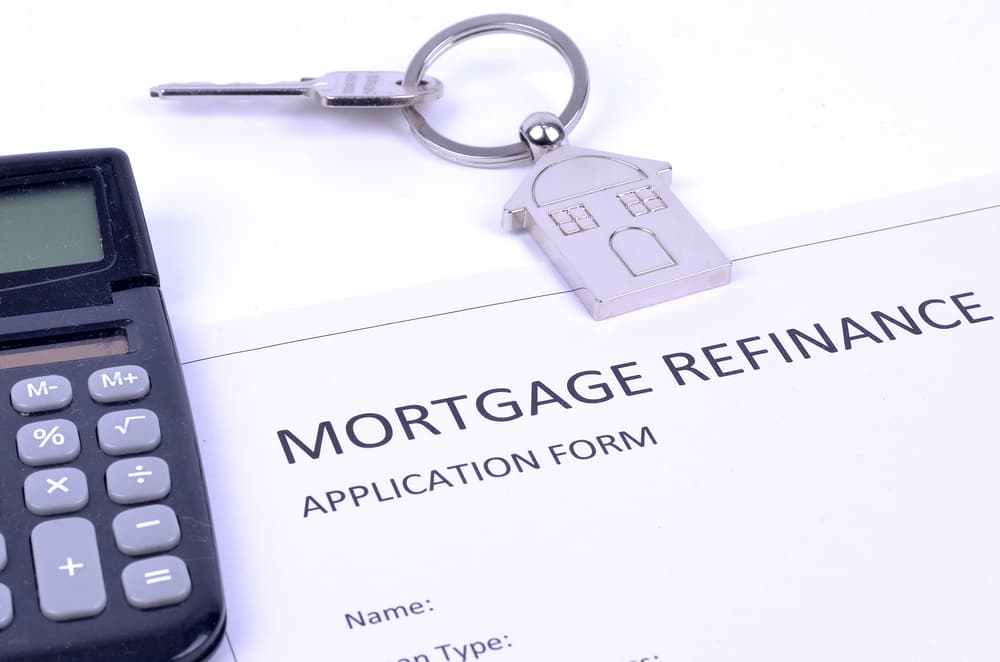Pros and Cons of Refinancing Your Mortgage

- By : Medallion Capital
- 0 Comments
Have you ever thought about refinancing your current mortgage? Between the uncertain economic environment we find ourselves in and the extremely low-interest rates currently available, a lot of homeowners are exploring this option right now. But what exactly is the benefit of refinancing a mortgage, and are there downsides that you need to consider?
Today, we’ll explore the pros and cons of refinancing your mortgage in hopes of helping you make a more informed decision.
You May Get a Lower Interest Rate
Fixed-rate mortgages are by far the most popular choice among Canadian homeowners as they instill confidence when making what is usually the largest purchase of their life. It feels better to know for certain what you’ll be paying for a specific period of time. However, it’s okay to second-guess this decision. If you have a fixed-rate mortgage and you’re looking longingly at current rates lower than what you’re locked in at, you may be able to secure a lower rate by refinancing your mortgage, even if you’re only two or three years into the original term. This can have a significant impact for many homeowners as, due to the average mortgage loan amount, even small interest rate reductions can result in considerably lower monthly payments. This can amount to thousands of dollars less that you’ll owe in the long run, which may shave several months, or even years, off your repayment plan.
Potential Penalties
So, what’s the catch? The catch is that when you refinance your mortgage before the original term expires, you will usually be subject to fees and penalties to exit that term early. These can include a mortgage prepayment penalty. It will depend on the details of your mortgage and how your lender calculates the fee, but it is usually the higher of the amount equal to three month’s interest on what you still owe, or the interest rate differential (the difference in interest you would have paid with your previous rate versus the current rate). When the interest rate differential is applied, it can result in a sizable penalty. Taking advantage of your prepayment privileges before refinancing can be an effective way of reducing the penalty. There may also be mortgage discharge fees of a few hundred dollars if you switch to a new lender, as well as mortgage registration and legal fees that can vary depending on where you live and which real estate lawyer you work with.
What’s important is that you work with your mortgage advisor or lender to understand all the up-front costs involved and compare them with the long-term savings to get a full picture of whether or not refinancing makes sense in your situation. To avoid unwanted surprises, read up on your current mortgage agreement’s terms and conditions to ensure you understand exactly what you’re responsible for before you decide to shop around.
You Can Borrow Against Your Equity
Another reason why homeowners refinance their mortgage is to unlock the equity in their home by taking cash out as part of a refinance. This can make sense for people looking to consolidate their debt. If you have high-interest credit card payments or automobile loans, taking on a slightly larger mortgage in order to eliminate these debts may help lower your overall debt servicing costs.
Another purpose for this type of refinancing is to free up funds for large-scale renovations, additions, or repairs to your property. A cash-out refinancing can help you protect the equity in your home in the event of a crucial repair, such as a new roof, or help boost your equity by allowing you to make drastic improvements, like adding a detached garage. Some even refinance in this way in order to open a business or fund large purchases such as a new vehicle. Just like when the motivation to refinance is to secure a lower interest rate, it’s imperative that you fully understand the impact a cash-out refinancing will have on your overall finances so you can properly weigh the benefits and risks. That includes ensuring you’ve done your due diligence around the costs of any home upgrades or business ventures you’ll be using the money for so that you can accomplish the goals behind refinancing to begin with.
Your Amortization Will Reset
One impact of refinancing that is commonly overlooked is that the timer resets. In other words, you will start at the beginning of a new amortization period. It will depend on your situation and what type of monthly payments you can handle, but refinancing will often result in an increase to your remaining amortization period. If you’ve been eagerly counting down the years to finally owning your home outright, pushing that further out into the future can be a hard pill to swallow. It will also mean that in the early going you’ll be paying a significant amount towards interest, as opposed to paying down the actual principal. If you can handle this from a mental point of view and it makes sense financially, refinancing may be a good option for you. Also, if you’ve just recently started a new mortgage prior to refinancing, it’s less painful to restart the amortization period compared to doing so several years later.
Our team at Medallion Capital Group understands how important your mortgage is to you, and refinancing can be an excellent option for a number of reasons. However, with all such important decisions, it’s always a good idea to weigh the pros and cons in advance. If refinancing your mortgage is something you’d like to explore, our Toronto mortgage brokers are here to help. To get started, contact us today or complete our online application. We look forward to helping you achieve your financial goals!
